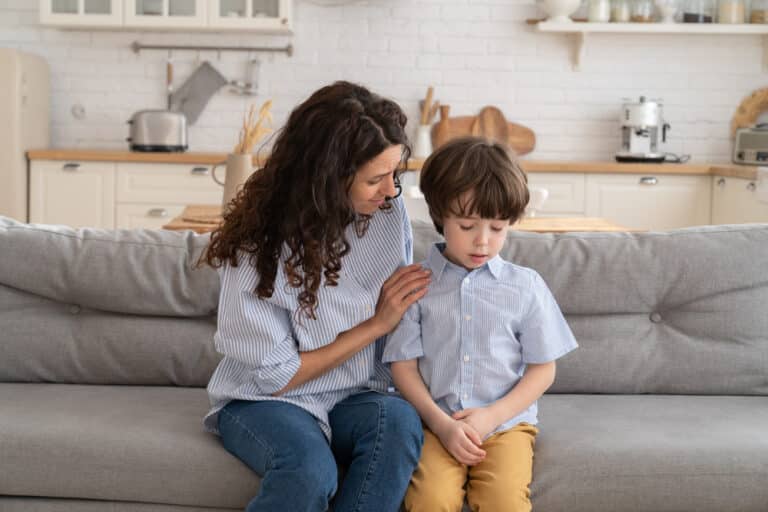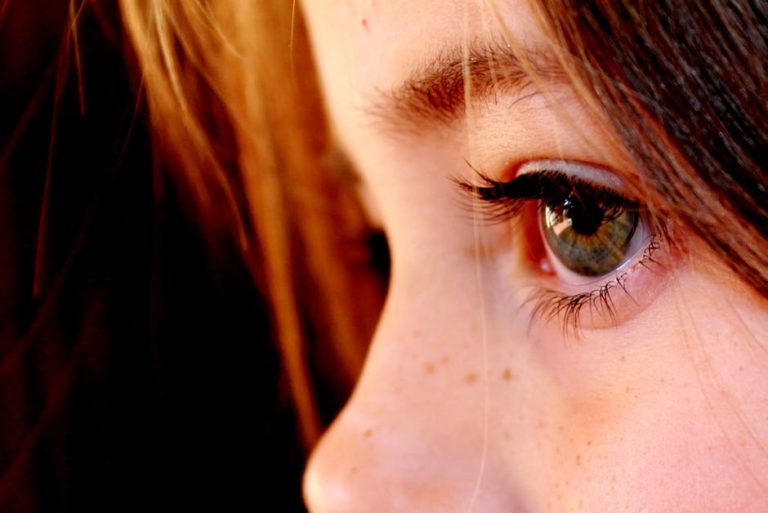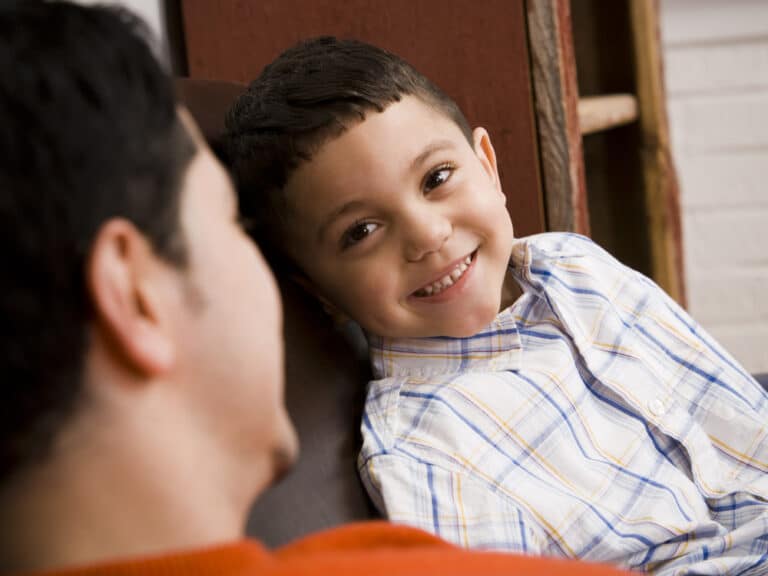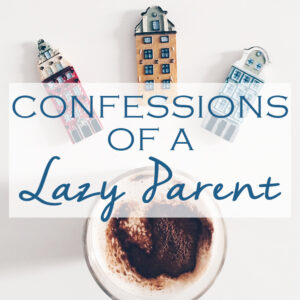Learning to love yourself is hard work. I did not grow up loving myself. Instead, I always felt inadequate, and I felt the need to change myself to prove my worth.
I want more for my kids. I want my kids to know their inherent value and worth. I want to empower my kids to love and accept themselves.
My self-love journey, aided by the expertise of a counselor, has helped me realize there are some narratives from my childhood I needed to unlearn. I had to accept my emotions as helpful and not something to be pushed down. I had to start respecting my body and stop trying to change it. I had to realize that loving myself is not selfish but vital to being a loving mom and balanced person.
I want to empower my kids to embrace these lessons as well.
So, in the hopes of growth and positive change, I have decided to try to avoid a few common parenting phrases. Language is important. I want the world for my kids, and I don’t want the things I say to limit them.
RELATED: I’m Teaching My Kids To Stand Up For Themselves
Please know I am not writing this to judge any parents or caregivers. We are all doing the best we can!
Without further ado, here are the three things I try not to say:
1. “You’re okay, stop crying.”
I want my kids to learn emotional regulation and not repression.
When I cried growing up, I often felt like an emotional, silly girl. The youngest of four kids, I tried to teach myself to be tough. When moments of uncontrolled emotions would spill out, I would feel overly dramatic, weak, and ashamed. Counseling helped me realize that my emotions are valid and can be important indicators guiding me as I make decisions.
With my kids, rather than feeling ashamed and scared of emotions, I want them to develop emotional intelligence.
Forcing my kids to “stop crying” might be quicker and make me feel less uncomfortable; however, this doesn’t teach them how to regulate and process their emotions. Emotional regulation is a multiple-step process that involves understanding, labeling, and dealing with the emotion. Depending on the issue, this may involve guiding them as they calm down or helping them problem solve.
While this can take some time and is labor intensive, I hope these skills will enable my children to become kind, well-adjusted, flexible humans. Teaching this process is super tough, and I definitely am not an expert. While this is hard work, I truly believe it will benefit my children in the long term.
Permission to Feel: The Power of Emotional Intelligence to Achieve Well-being and Success by Marc Brackett discusses the importance of teaching emotional intelligence to children. I highly recommend this book to anyone wanting to know more about practicing and teaching these skills.
2. “Finish your dinner or you don’t get dessert.”
From an early age, I always felt too big and never trusted my body around food. Restricting what and how much I ate to lose weight, I learned to completely ignore my body’s cues. This evolved into an eating disorder during my young adult years.
Through counseling and my recovery process, I have learned to engage in “intuitive eating.” Instead of external diets and rules, my body guides my choices depending on what food feels nourishing and pleasurable. I also tune in to my body’s unique hunger and fullness signals to determine how much I eat.
Food is important for growth and energy. I definitely understand a parent’s desire and struggle to get kids to eat the food on their plates. My concern with the “finish your dinner or you don’t get dessert” strategy is that it teaches children to ignore their hunger and fullness signals.
Often, kids don’t learn to trust their bodies with how much to eat and what feels good. Instead, their parents’ rules override those signals. This phrase also puts hyper-focus on dessert which can further distort a kid’s ability to listen to their own body.
Intuitive eating is something we can start teaching kids early on. I want my children to listen to their bodies rather than parental coercion to determine what and how much to eat.
The book Intuitive Eating: A Revolutionary Program that Works by Elyse Resch and Evelyn Tribole discusses in-depth research supporting this shift and has a section devoted to adapting this process for kids.
3. “Boys don’t do that.”
I am a boy mom. Currently, three boys to be exact. They are each unique, special, and beautiful individuals. I want them to become the biggest, truest, loveliest versions of themselves without feeling trapped by any external pressure of what it means to be a boy.
The strict gender roles of our society place limitations on both girls and boys. Girls feel pressure to be beautiful, quiet, small, and selfless. I can personally relate to the harm of this narrative. As I said, I spent years of my life trying to make my body and emotions smaller in hopes of being more appealing to others.
RELATED: I’m Not Going To Toughen Up My Sensitive Son
Boys also feel intense societal pressure to conform. However, the message is different. They are expected to be strong, tough, and unemotional. This can lead to men being disconnected and unable to have meaningful relationships, unable to be creative, and unable to enjoy life.
In Brené Brown’s book Daring Greatly: How the Courage to Be Vulnerable Transforms the Way We Live, Love, Parent, and Lead, she discusses “toxic masculinity” and how these expectations can feel like a cage for men. For further information on how strict gender roles negatively impact both boys and girls, I highly recommend this book.
My desire is to empower my kids to love themselves, enjoy their lives, and embrace who they were created to be.
I don’t want them to feel trapped by what our modern culture thinks they should be. This can be hard because obviously, I don’t want them to be teased or excluded by their peers.
When my son wants a pink water bottle, reacts with big emotions, or wants to paint his toenails, it can be hard not to discourage these girly things. While these choices may seem small, I don’t want some silly rules to limit their happiness. Instead, I encourage them to do what feels authentic and what they enjoy.
I have to admit that while I try not to use these phrases, they still spill out in moments of frustration or inattention. I believe parenting is not about perfection but rather intention. I fully acknowledge I am still learning, growing, and definitely do not have all the answers.
So, what do I say instead? Here are a few examples:
“Ouch, did that hurt? Can I give you a hug?”
“You’re crying. Are you frustrated?”
“Would you like to eat more or is your tummy full?”
“Is this something you would enjoy?”
“Somebody might say pink is for girls, but I love that it’s your favorite color.”
“I love you so much.”
“I am so glad you are my kid!”
My hope is that with some simple changes, I can avoid some of the harmful narratives common in our culture that I had to unlearn. I want to encourage my kids to be emotionally intelligent, intuitive eaters, and truly confident as the wonderful people they were created to be.
Learning to love yourself is hard work, and I want the words I say to empower my kids to rise to this challenge.
Originally published on the author’s blog
Recommendations in this post contain affiliate links. Her View From Home may receive a small commission if you choose to purchase.

If you liked this, you'll love our book, SO GOD MADE A MOTHER available now!
Order NowCheck out our new Keepsake Companion Journal that pairs with our So God Made a Mother book!
Order Now
















